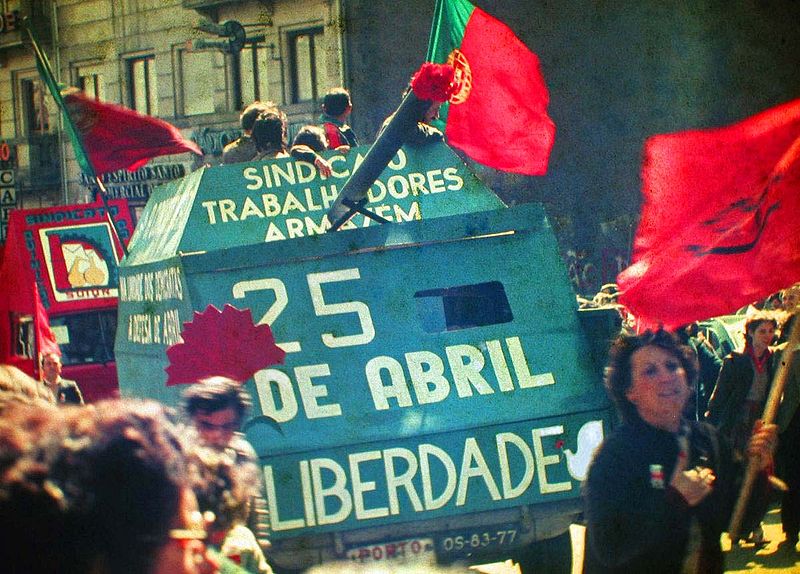Portuguese Colonial War (1961-1974)

A commemoration of the Carnation Revolution in 1983 taken by Henrique Matos. (Creative Commons photo. Attribution to author and info can be found here)
The Portuguese had been the first country to colonize Africa and after WWII when the rest of the countries were leaving their colonies, they decided to stay put. The fact that they didn’t leave led other countries to boycott (embargo) trade with them. Many other western countries felt that continued presence in Africa would lead to a spread of communism, so the Portuguese were not making these countries happy by staying. The Portuguese did pretty well against these countries and kept the rebels from winning too many victories for some time. In the end, an internal revolution would cause the Portuguese withdrawal from these areas.
As time progressed in these wars the Portuguese citizens tired of spending the money it was taking to end these wars. The country had been spending as much as 40% of their budget on fighting these and the people wanted it used elsewhere. The government was wary of how people felt so they started to discuss implementation of harsher laws in the country. At around this time a group played a banned song on the radio as an act of rebellion against the government and that single act would trigger a left wing military coup known as the Carnation Revolution (1974). Citizens took to the streets to protest despite being told not to by government officials. Tons of people went and bought red carnations from flower shops and put them in gun barrels as
a sign that they would prefer peace instead of constant war. The fact that these were red showed the influence communism was having on this movement, so the military overthrew the government before that became even more of a popular stance. They shifted the government from an authoritarian one to a democracy and forced all the communists and socialists in the country to leave. Finally, the new leaders started the process of ending the wars and giving independence to each of these countries. This caused a mass exodus of people leaving the colonies to go back to Portugal. It ended up being one of the largest peaceful migrations in history, with over 1 million people moving.
